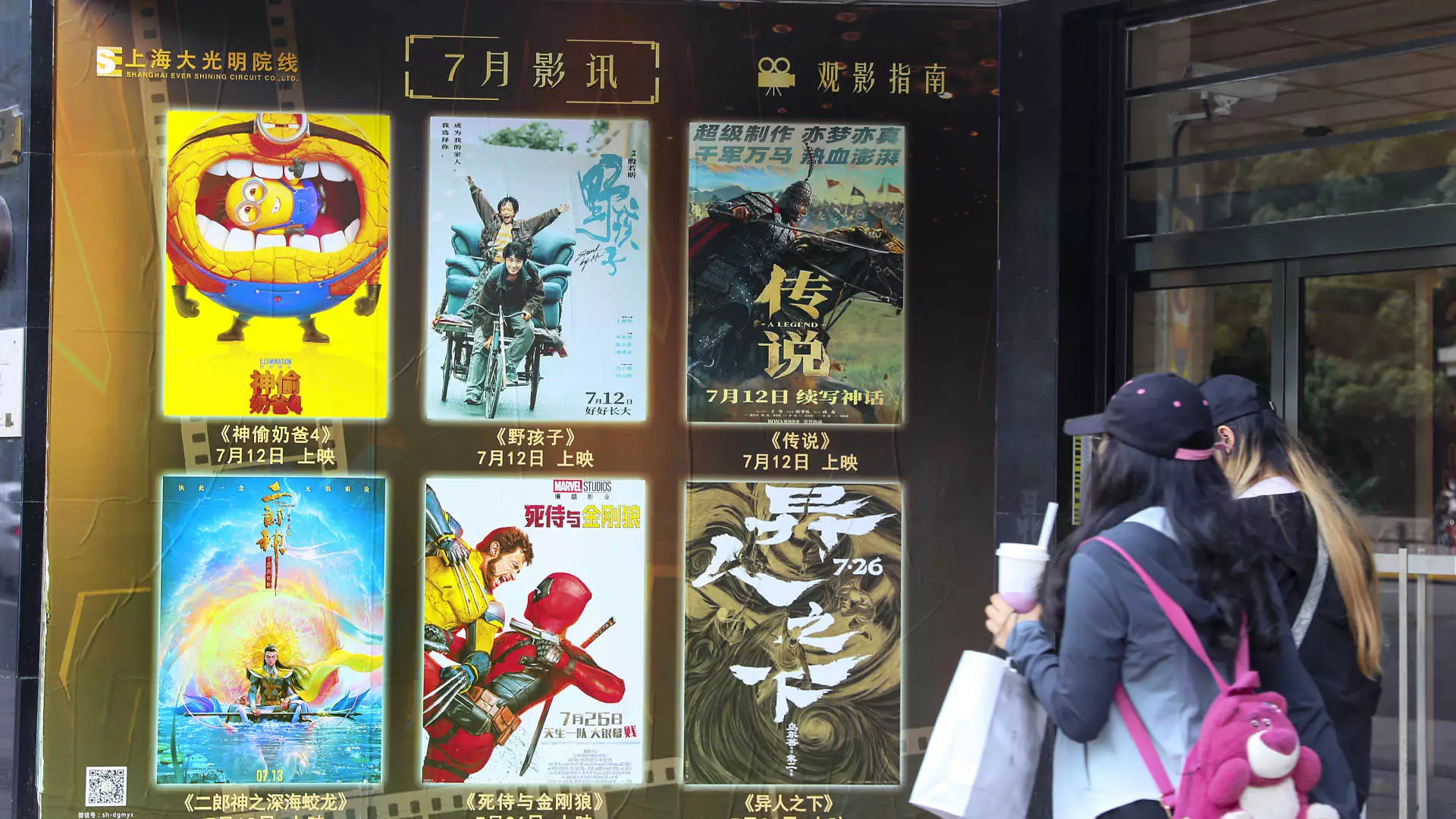Hollywood’s glimmering image as a beacon of creativity and entertainment is increasingly tarnished by the unpredictable waves generated by President Donald Trump’s trade war. As tariffs on Chinese imports have surged, the repercussions have rippled through the film industry, hitting major studios like Disney and Warner Bros. Discovery hard in their financial portfolios. A marked decline in their stock valuations paints a sobering picture of an industry grappling with economic turbulence and geopolitical strife.
Traditionally, the Chinese market has been a fertile ground for American filmmakers eager to capitalize on its vast audience. Yet, a cultural and economic shift has transformed this once-coveted market into a battleground where domestic Chinese films thrive at the expense of Hollywood’s blockbuster prospects. As audience preferences shift towards local productions, big-budget American films struggle to make a significant dent at the Chinese box office. The walls that once made Hollywood invincible are now crumbling, forcing studios to confront the harsh realities imposed by international trade disputes.
Retaliation: A Cold War of Culture
In a retaliatory move reflective of the current political climate, the Chinese government has curtailed the number of Hollywood films permitted in its theaters. This policy change can be seen as a crude but effective weapon in the trade war, squeezing American studios further. The era when Chinese audiences eagerly lined up for U.S. blockbusters seems distant as they increasingly turn to homegrown narratives that resonate with their cultural identity. Such a shift is profoundly troubling for Hollywood, where expectations of international revenues once fueled financial forecasts and project viability.
Industry insiders, like Ann Sarnoff, former CEO of Warner Bros., acknowledge the bleak reality of dwindling rental rates and an increasingly hostile market. The dynamic they once relied upon—planning for robust earnings from Chinese ticket sales—has undergone a dramatic transformation. Now, it’s nearly impossible to predict success there, leading many studios to scale back their expectations, if not ignore them entirely. The loss of the Chinese market’s economic potential reverberates through the entire U.S. film industry, reshaping the way studios approach future investments.
A Cultural Renaissance: China’s Domestic Film Industry
Despite Hollywood’s struggles, the Chinese film industry is flourishing, marked by a surge in local productions that command critical and commercial success. In recent years, films like “Ne Zha 2” have shattered records, proving resonant enough to pull in staggering box office numbers—achieving $1 billion within its domestic market alone. Unlike Hollywood’s trajectory, which is hampered by external tensions, China’s film sector benefits from a growing domestic appetite for culturally rich, relatable stories. The evolution is not merely quantitative; rather, it reflects a qualitative shift in audience expectations and taste, positioning domestic productions as viable competitors on the global stage.
With the absence of the 2017 U.S.-China Film Agreement, which had allowed a steady stream of American films into China, many in Hollywood find themselves navigating a minefield of cultural apprehension and economic unpredictability. The landscape is changing, with China following a path that fosters its cinematic narrative instead of overly relying on foreign films. As the gap narrows, the consequences for U.S. studios grow increasingly dire.
The Currency Crisis: A Financial Tightrope
Adding another layer of complexity to this already fraught scenario is the weakening of the dollar. While lower currency values traditionally boost box office returns in international markets, the flip side of this coin is an increase in operational costs for Hollywood studios trying to compete globally. The recent volatility in global markets leaves executives in Hollywood uncertain about future financial formulas.
Caught in this whirlwind of fluctuating tariffs and currency rates, Hollywood stands at an existential crossroads. The once unwavering belief in the global desirability of American films is eroding, leaving studios scrambling to adapt. With the pressing need to prioritize local narratives and temper expectations, Hollywood faces an uncertain future that could redefine its very essence. The trade war might not only threaten the bottom line; it could fundamentally change the nature of storytelling that’s come to define an industry.
In this climate of hostility, the entire global entertainment landscape appears set for an upheaval, one that could see Hollywood’s supremacy reframed in the annals of cinematic history. The cultural cold war brewing as a result of deeply entrenched trade disputes could prove that, in the world of film, expectation is fast becoming a luxury.

